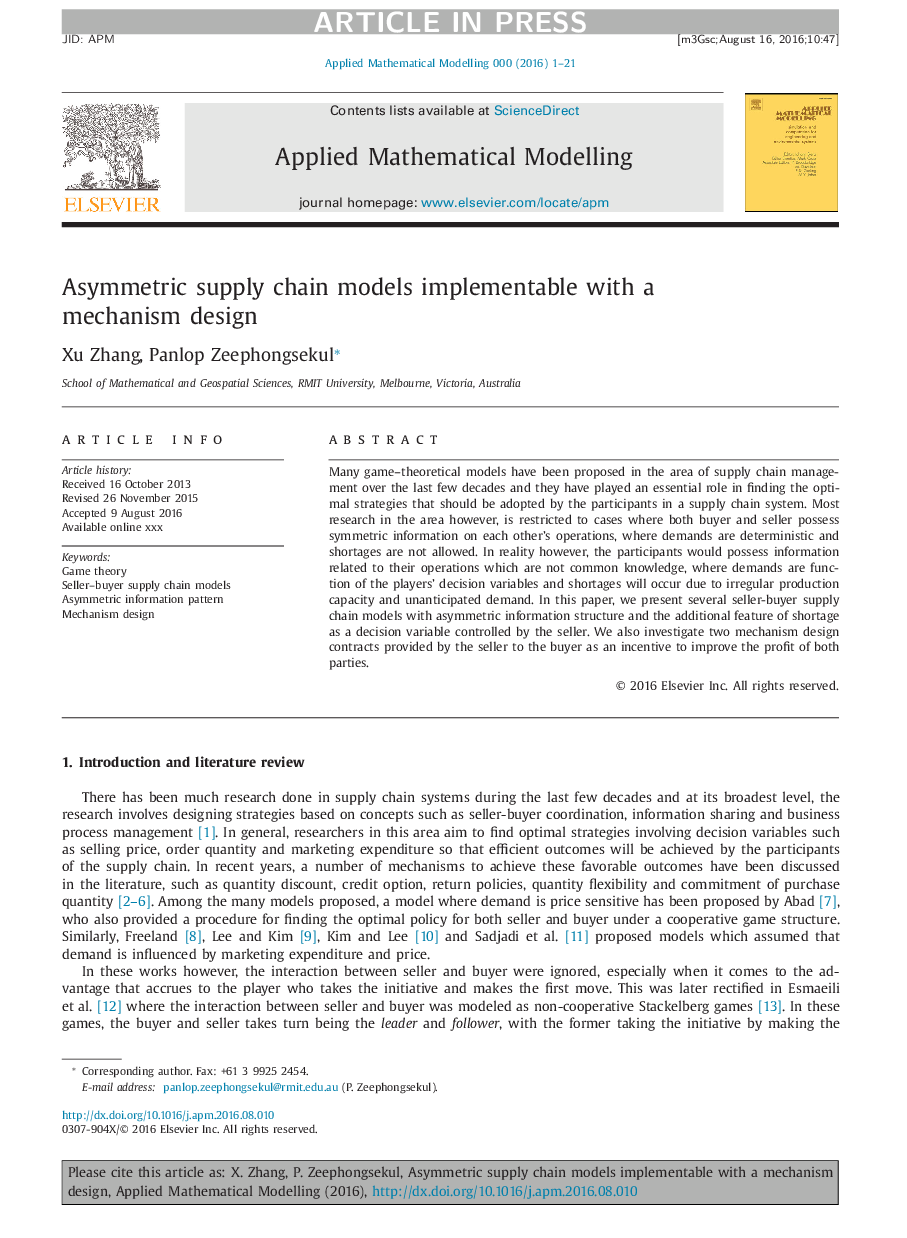| Article ID | Journal | Published Year | Pages | File Type |
|---|---|---|---|---|
| 8052502 | Applied Mathematical Modelling | 2016 | 21 Pages |
Abstract
Many game-theoretical models have been proposed in the area of supply chain management over the last few decades and they have played an essential role in finding the optimal strategies that should be adopted by the participants in a supply chain system. Most research in the area however, is restricted to cases where both buyer and seller possess symmetric information on each other's operations, where demands are deterministic and shortages are not allowed. In reality however, the participants would possess information related to their operations which are not common knowledge, where demands are function of the players' decision variables and shortages will occur due to irregular production capacity and unanticipated demand. In this paper, we present several seller-buyer supply chain models with asymmetric information structure and the additional feature of shortage as a decision variable controlled by the seller. We also investigate two mechanism design contracts provided by the seller to the buyer as an incentive to improve the profit of both parties.
Keywords
Related Topics
Physical Sciences and Engineering
Engineering
Computational Mechanics
Authors
Xu Zhang, Panlop Zeephongsekul,
